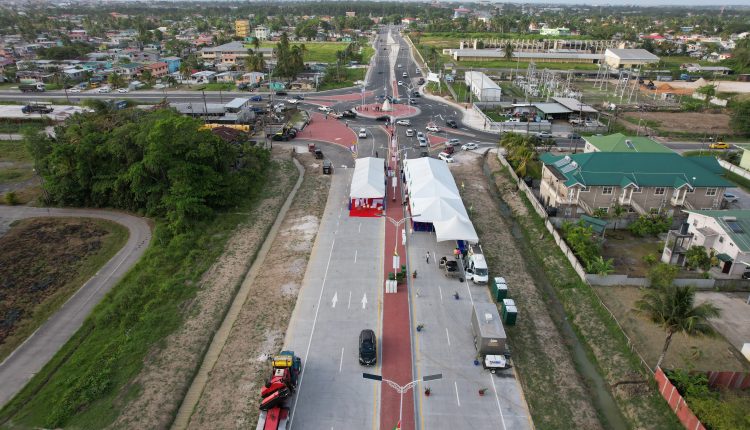Guyana balancing ‘risks’ that come with rapid transformation – Finance Minister
The government is committed to the rapid transformation of Guyana “as quickly as possible” but is doing so while “striking the right balance,” Finance Minister Dr Ashni Singh said on Saturday.
His comments come following the latest report on Guyana from the International Monetary Fund (IMF). The report noted the transparency measures put in place to manage the country’s oil funds through the Natural Resource Fund (NRF) Act, saying the incoming oil funds could be used to meet “infrastructure gaps and human development needs.” But the report noted that there should be caution in determining the pace of ramping up public investment, advising that there be “a feasible and moderate increase.”
“While pressing development challenges still face the country, a large surge in public investment could add inflationary pressure, affect competitiveness of the non-oil economy, lead to an eventual loss in FX (foreign exchange) reserves, and might not be sustainable over the medium-term,” the IMF said in a Concluding Statement of it’s latest Article IV Mission to Guyana.
But Dr Singh said that the government is “completely mindful” of the risks that are associated with a rapid ramping up of public investment, recognizing that “investment at an excessively rapid pace does create some risk of overheating.”
“But at the same time, we have a commitment to ensuring that we deliver to the people – in the shortest possible time – the transformation for which they’ve been waiting for so long.
“And so our task as a government is to ensure that the right balance is struck to ensure that we deliver transformation quickly, but we do so in a manner that is sustainable from a macroeconomic standpoint,” Dr Singh said from Egypt where he is attending the 2022 Annual Meeting of the Islamic Development Bank.

He added: “We want as government to implement and achieve the transformation of our country in the shortest possible time. That’s our commitment to the people of Guyana and the people quite rightly and understandably want to see this transformation happen as quickly as possible.
“And we are committed to delivering it as quickly as possible, but it has to be delivered and managed in a manner that does not undermine the macro-economic objectives that are so essential to achieving the long-term objectives that we set ourselves.”
The IMF mission recommended setting annual budgets within a fiscal framework that, over the medium term, constrains the annual non-oil overall fiscal deficit (after grants) to not exceed the expected transfer from the NRF, to anchor fiscal policy in a sustainable way.
“This rule will also ensure that fiscal spending, including capital spending, is increased at a measured pace, to address development needs without macroeconomic imbalances.
“Staff also recommend further analysis of the oil transfer rules, to ensure the long-term sustainability of the NRF and intergenerational equity,” the IMF stated.
A staff team from the IMF led by Ms. Alina Carare (incoming mission head) and Meredith McIntyre (outgoing mission head) held virtual discussions during May 18-June 1st for the 2022 Article IV Consultation.
The team met with Dr Singh, Minister of Parliamentary Affairs and Governance Gail Teixeira, Central Bank Governor Gobind Ganga, other senior officials, representatives from the private sector, banks, the opposition party, labor unions, and other stakeholders, including Guyana’s international development partners.
The IMF noted that Guyana’s medium-term prospects are more favorable than ever before, with increasing oil production having the potential to transform Guyana’s economy.
It was highlighted that oil production is expected to increase significantly with the coming on stream of two large oilfields in the Stabroek Block during 2022-26. Guyana’s commercially recoverable petroleum reserves is estimated to be well over 11 billion barrels, the third largest in Latin America and Caribbean, and one of the highest levels of oil reserves per capita in the world.
“This could help Guyana build up substantial fiscal and external buffers to absorb shocks while addressing infrastructure gaps and human development needs,” the IMF team stated.
They cautioned that increased dependence on oil revenues will expose the economy to volatility in global oil prices and that a slowing global economy and the repercussions from the war in Ukraine could also adversely affect non-oil exports.
“On the other hand, higher global oil prices and additional gas and oil discoveries could significantly improve Guyana’s long-term economic prospects.”



